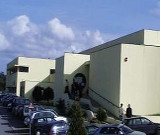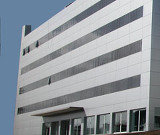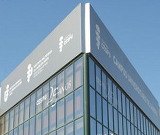» Writing and publishing scientific articles
Anfitriã: Inês Margarida Ferreira Ribeiro (Doutoranda em Ciências Biomédicas no IUCS-CESPU)
Palestrante: Ana Marta Silva
Afiliação: University Institute of Health Sciences (IUCS-CESPU); Center for Health Technology and Services Research (CINTESIS); Faculty of Medicine of the University of Porto
21 de maio | 12h
Campus Universitário de Gandra | Ed. 2 | Sala 2148
ENTRADA LIVRE
Resumo:
Scientific writing and publishing are fundamental for disseminating research findings, contributing to evidence-based scientific advancement of knowledge. Understanding the essential steps of writing and publishing a scientific article is crucial. This includes knowing how to structure an original manuscript, select appropriate journals, and apply internationally recognized reporting guidelines such as CONSORT, PRISMA, and STROBE. Equally important are the practical aspects of the publication process—composing a clear and concise abstract, writing an effective cover letter, addressing peer-review feedback, and managing issues related to authorship and conflicts of interest. Implementing strategies that enhance the clarity, transparency, and scientific impact of manuscripts is key, as is recognizing and avoiding common pitfalls. By developing these skills, researchers are better equipped to navigate the entire publication process, from initial drafting to final acceptance, confidently and competently.
» The essential triad in research and development: the projects, the funding sources, and the publications
Anfitriã: Ana Catarina Azeredo Oliveira (Doutoranda em Ciências Biomédicas no IUCS-CESPU)
Palestrante: Augusta Silveira
Afiliação: Fernando Pessoa University, Porto, Portugal; Center for Health Studies and Research, University of Coimbra (CEISUC); Center for Innovation in Biomedicine and Biotechnology, University of Coimbra (CIBB).
22 de maio | 12h
Campus Universitário de Gandra | Ed. 2 | Sala 2148
ENTRADA LIVRE
Resumo:
The path to a PhD transcends mere original research for a doctoral candidate. It demands profound engagement with the scientific community, where the development of the research project, the acquisition of funding, and the consistent publication and presentation of findings at conferences stand as three crucial pillars underpinning their evelopment and ultimate success. Publishing research outcomes in peer-reviewed scientific journals guarantees that the generated knowledge propels their field forward. This rigorous process of scrutiny and validation by the scientific community bestows credibility and recognition upon their work. Publications serve as a critical gauge of a doctoral candidate's productivity and research impact, essential factors for future academic and professional prospects. Obtaining funding for the research endeavor is a strategic imperative. Familiarity with the various funding streams for research projects, doctoral, and postdoctoral fellowships not only facilitates the execution of research by providing vital resources (equipment, materials, travel, publication support) but also elevates the project's and the researcher's standing. For a doctoral candidate, integration into a funded project can provide access to a robust research ecosystem, complete with advanced infrastructure and a network of seasoned colleagues. Presenting research at national and international conferences is indispensable for a doctoral candidate's training and visibility. These forums offer an invaluable opportunity to disseminate preliminary or conclusive research findings to the scientific community, garner constructive feedback from peers and leading experts, and forge connections and future collaborations within a global sphere. Cultivating a substantial publication record during doctoral studies showcases the capacity to conduct high-quality research, communicate findings effectively, and actively participate in the global scientific discourse.
» The changing paradigm of Hepatitis E virus in a One Health perspective
Anfitriã: Ana Filipa Marques (Doutoranda em Ciências Biomédicas no IUCS-CESPU)
Palestrante: João R. Mesquita
Afiliação: ICBAS - Instituto de Ciências Biomédicas Abel Salazar, Universidade do Porto
23 de maio | 12h
Campus Universitário de Gandra | Ed. 2 | Sala 2148
ENTRADA LIVRE
Resumo:
Hepatitis E virus (HEV) has long been considered a self-limiting infection restricted to developing countries, but emerging evidence has reshaped this paradigm. Over the past decades, the recognition of chronic HEV infections in immunocompromised individuals, the zoonotic transmission from animal reservoirs, and the increasing reports of autochthonous cases in industrialized countries have highlighted its global relevance. In my talk, I will show you how these evolving concepts have transformed our understanding of HEV epidemiology, pathogenesis, and clinical impact. In particular, I will focus on how genotype-specific differences influence hostvirus interactions and disease progression, and how the interplay between viral persistence and zoonotic spillover events has shaped the circulation of this virus in Portugal.








